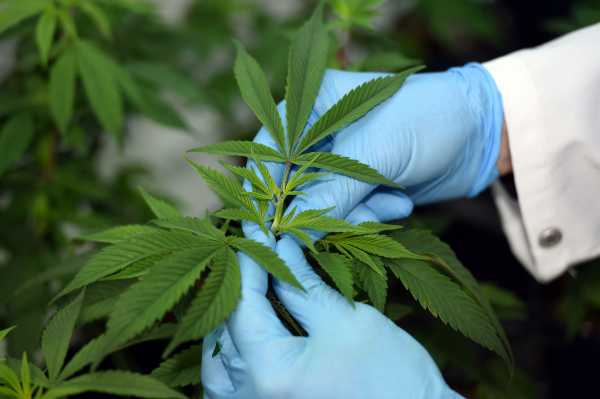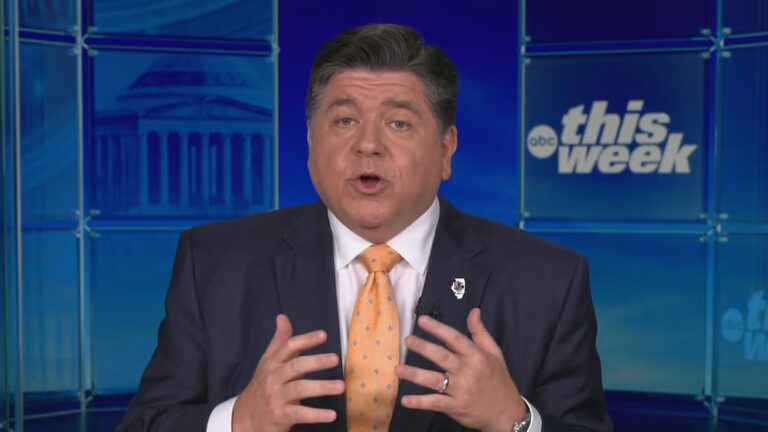
George Hodgin is ready to go. The moment he gets approval from the federal government, his company is ready, he said, to produce high-quality marijuana for research — and nearly two dozen university researchers are on board to buy it for studies that could help fill the surprisingly large void in what we know about marijuana’s benefits and harms.
There’s just one problem: The US Department of Justice won’t give him the approval he needs to start producing weed. So the researchers clamoring for access to marijuana — to finally learn more about the drug’s effects — can’t get it, even as states move to legalize pot.
“We only want to provide clean, consistent, compliant cannabis for researchers,” Hodgin, CEO of the California-based Biopharmaceutical Research Company, told me. “We’re sitting on one of the most sophisticated cannabis production facilities in the United States. And it’s empty, because the federal government is playing politics with something that is apolitical.”
Marijuana is already legal for recreational and medical purposes under 10 states’ laws and legal only for medical uses under 22 additional states’ laws. But it remains illegal under federal law, so researchers aiming for any federal funding or tied to a federally funded institution (including all major research universities) face big legal barriers if they want to study the drug.
For years, the federal government has allowed one approved grower, at the University of Mississippi, to supply weed to researchers who make it through an arduous application process. But the quality of this marijuana is terrible — it looks more like oregano than pot. Researchers have demanded higher-quality options for years.
That’s where Hodgin could come in. He and dozens of others applied under a new federal program, started under the Obama administration, that was supposed to get more federally approved growers for marijuana research.
Then Donald Trump won the 2016 election, and appointed Jeff Sessions, who vehemently opposes marijuana legalization, to head the Justice Department as attorney general. After that, the program seemed to stall: A former Drug Enforcement Administration (DEA) official who worked on the research program told me his agency was ready to move forward, but it couldn’t without approval from the Justice Department. Sessions and his staff seemingly weren’t willing to take any proactive steps that could in any way be seen as pro-marijuana.
After Sessions resigned last November, there was some hope that the program would move forward. But so far, that hasn’t happened.
Asked about the program, Justice Department spokesperson Wyn Hornbuckle said he had “[n]o updates on this at the moment.” DEA spokesperson Rusty Payne said that his agency is “still working through the process with the Department.”
So people like Hodgin have been left waiting for years, ready to grow marijuana for research but without the federal approval needed to do so.
“I feel like the government I fought to protect doesn’t understand the urgency of this problem,” Hodgin, a retired Navy SEAL who served in Afghanistan and Southeast Asia, said. “My story should be the American dream: A Navy SEAL uses the GI Bill to get a graduate education and start a company that helps Americans and creates jobs. But sadly, the DOJ and DEA are playing politics with science and lives, and instead big government inertia and red tape are blocking critical research.”
We know surprisingly little about marijuana
People have been using marijuana for thousands of years, but we still don’t know a lot about it.
In 2017, the National Academies of Sciences, Engineering, and Medicine published the best review of the research on marijuana to date. Combing through more than 10,000 studies published since 1999, the review by a dozen-plus experts provided the clearest look at the scientific evidence on marijuana yet.
The review did find some research. It suggested that there’s promising evidence for marijuana’s use for chronic pain, multiple sclerosis, and cancer patients. But the review also found that marijuana may pose risks for respiratory problems if smoked, schizophrenia and psychosis, car crashes, lagging social achievement in life, and perhaps pregnancy-related problems.
But above all, the National Academies said that the evidence to date is weak and more good research is needed — warning that “conclusive evidence regarding the short- and long-term health effects (harms and benefits) of cannabis use remains elusive.”
The review blamed the lack of good research largely on government policies — particularly regulatory barriers linked to cannabis’s federal classification as a highly restricted schedule 1 substance — that make it difficult to conduct good studies on the drug. It noted, for one, that researchers “often find it difficult to gain access to the quantity, quality, and type of cannabis product necessary to address specific research questions.”
The National Academies called for these barriers to be cut down and more research to be funded so we can learn more about marijuana. It’s an especially pertinent call today — as states move to legalize marijuana for medical and recreational purposes and presidential candidates join the calls for legalization.
“The National Academies of Sciences, as well as scientists and researchers themselves, have repeatedly stressed that they need a greater diversity of research-quality cannabis,” Hodgin said. “There shouldn’t be a government monopoly on something that’s so important.”
The government makes researching marijuana difficult
Under federal law, marijuana remains illegal. And as a schedule 1 substance, the federal government doesn’t acknowledge any safe use of marijuana — medical or otherwise.
But the federal government has historically allowed research on marijuana. As part of the process, researchers have to get several approvals from multiple federal agencies just to study cannabis. Once researchers clear those hurdles, they get the aforementioned weed from the University of Mississippi.
The quality of this marijuana is terrible. Not only does it look bad, but as Christopher Ingraham and Tauhid Chappell reported at the Washington Post, the pot appears to have less THC (the main psychoactive compound in marijuana) than claimed, and it has high mold and yeast levels. With quality this bad, it’s hard for researchers to draw conclusions about pot’s effects, especially in comparison to the higher-quality weed that people use in the real world.
The DEA, under the Obama administration in 2016, moved to allow more growers for marijuana research. The agency explained: “Based on discussions with [the National Institute on Drug Abuse] and [the Food and Drug Administration], DEA has concluded that the best way to satisfy the current researcher demand for a variety of strains of marijuana and cannabinoid extracts is to increase the number of federally authorized marijuana growers.” So it implemented a new policy to let more people, like Hodgin, apply to grow cannabis.
The DEA seemed fairly ambitious in its approach. It noted that this policy could not only allow more research into marijuana, but if the findings were positive and pharmaceutical companies therefore pursued marijuana-based products, the new policy would give them a federally legal supply of weed they didn’t have before.
In politics, the prospect of more research on marijuana is typically uncontroversial. Democratic senators like Brian Schatz (HI) and Amy Klobuchar (MN) and Republican senators like Chuck Grassley (IA) and Cory Gardner (CO), for example, have pushed for the DEA’s new policy.
But Sessions, who once said that “good people don’t smoke marijuana” and tried to wage a war against marijuana legalization as attorney general, argued that approving more cannabis researchers could violate international anti-drug treaties. As Mike Riggs noted at Reason, this is almost certainly untrue — given that countries like the UK and Israel, which are signatories of the same treaties, have allowed plenty of marijuana research within their borders. The former DEA official I spoke to called Sessions’s claim “bullshit,” pointing out that the DEA’s legal experts reached the opposite conclusion before Sessions intervened.
The argument, however, seemed to give Sessions and the Justice Department the cover they needed internally to oppose allowing more growers for research.
With Sessions gone from the Justice Department, and William Barr recently replacing him, that could change. Barr opposes legalization, but he nonetheless told the US Senate that he supports allowing more research.
Yet so far, there hasn’t been any noticeable movement. So people like Hodgin, ready to do the work to get more marijuana out there for research, are left waiting.
“I’ve been shocked and disheartened that the government isn’t representing the will of the people,” Hodgin said. “Democrats and Republicans have both argued the need for more marijuana to be produced for research. Why would [the Justice Department] ignore them?”
Sourse: vox.com






